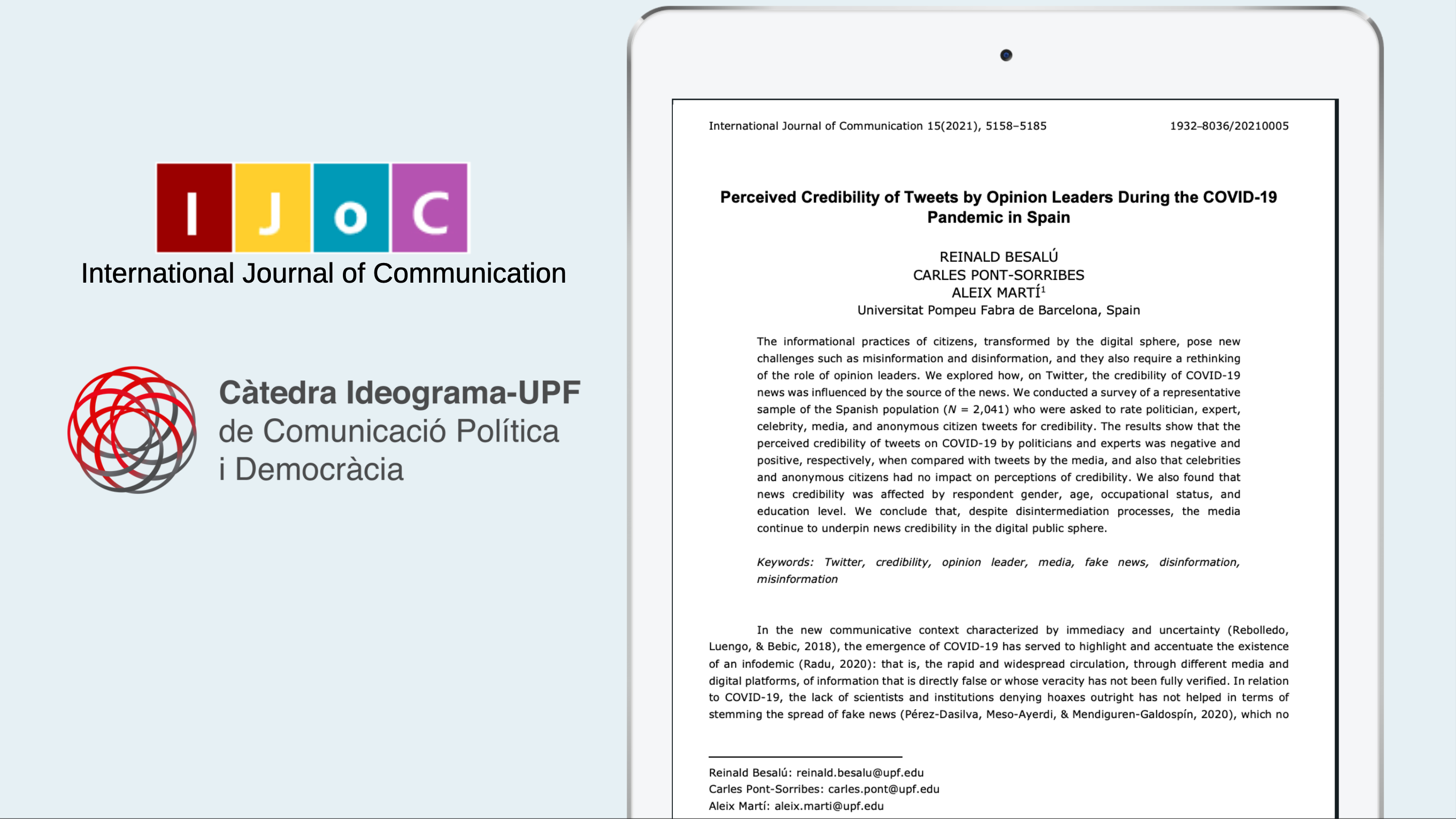New article published in the International Journal of Communication
New article published in the International Journal of Communication
Perceived Credibility of Tweets by Opinion Leaders During the COVID-19 Pandemic in Spain' is the title of the new article published in the International Journal of Communication (Scopus (Q1) and JCR (Q3) from the University of Southern California Annenberg. Its authorship falls on Reinald Besalú, Carles Pont-Sorribes and Aleix Martí.
The article arises from the research carried out by the Chair: Analysis of the credibility of information according to the type of opinion leader, in the context of Covid-19. In it, we evaluate the credibility associated with a message about Covid-19, depending on the type of opinion leader who says it.

Cover page of the article.
To evaluate the credibility of the different types of opinion leaders, a composite credibility indicator was created, made up of the following elements: Objectivity, Rigor, Impartiality, Plausibility and Credibility. All these elements are what the respondents evaluated.
The study allows us to reach different conclusions:
- In the first place, that despite the disintermediation that Twitter supposes between politicians and citizens, politicians have the lowest levels of credibility. The digital press continues to be a benchmark in credibility in the digital sphere.
- Second, experts are considered the most credible people when talking about issues related to Covid-19. In line with the results of other studies similar to ours.
- Age, sex, employment status, and educational level have been found to be significant variables in conditioning the evaluation of informative credibility.
- Regarding age, it is the younger people who are more skeptical towards opinion leaders, showing a clear trend of the younger the less credibility in general.
- In sex, we have found that women score with higher credibility. Especially in the case of experts and the media.
- Finally, with the employment status we find that retirees evaluate with a very high credibility (clearly related to the age variable) and that the unemployed also show higher levels of credibility in general terms. At the levels of studies, the correlation is established: more studies equates to less credibility.
| You can acces to the article through this link: 'Perceived Credibility of Tweets by Opinion Leaders During the COVID-19 Pandemic in Spain’ |
